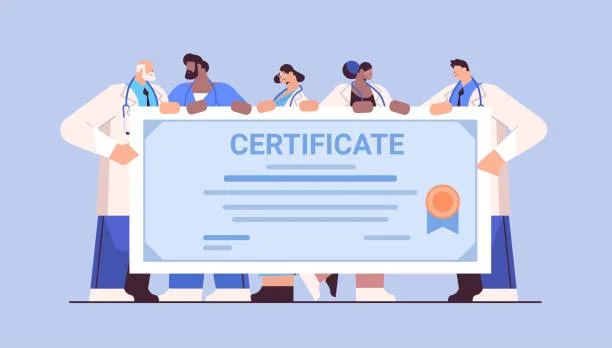In today’s professional environment, obtaining a medical certificate for work can be essential for a variety of reasons, including validating sick leave or confirming fitness to return to duties. A medical certificate serves as an official document from a qualified healthcare provider that verifies the state of an individual’s health.
Unlock insights now — dive into our Related Post for ideas that spark success!
Understanding the Purpose of a Medical Certificate
A medical certificate can serve multiple purposes. Primarily, it is a tool for employees to justify their absence due to medical reasons. It assures employers that an absence is legitimate and that the employee has consulted with a healthcare professional. Additionally, it can be used to confirm recovery and suitability to return to work, thus ensuring workplace safety and productivity.
Who Can Issue a Medical Certificate?
In Australia, a medical certificate can be issued by a range of healthcare professionals. This includes general practitioners, medical specialists, and sometimes allied health professionals, such as physiotherapists or psychologists, depending on the nature of the illness or injury. The issuing professional must be registered with a professional body and adhere to Australian medical standards and regulations.
Requirements for Obtaining a Medical Certificate
To obtain a medical certificate, an individual must consult with a qualified healthcare provider. The consultation can take place either in person or through telehealth services. During this consultation, the healthcare provider will evaluate the individual’s condition and determine their fitness for work or validate their need for sick leave.
The Process of Obtaining a Medical Certificate
The process of acquiring a medical certificate typically involves a few key steps. Firstly, the employee needs to schedule an appointment with a healthcare provider. During the appointment, the provider assesses the individual’s health. If deemed necessary, the healthcare provider will issue a medical certificate stating the required details, such as the duration of absence or specific work restrictions.
What Information Is Included in a Medical Certificate?
A standard medical certificate generally includes the patient’s name, the date of consultation, the duration for which the individual is unfit for work, and any relevant restrictions on work capabilities. Importantly, the certificate must be signed by the issuing healthcare professional and include their registration number.
Validating a Medical Certificate
Employers have the right to verify the authenticity of a medical certificate. This may involve contacting the issuing healthcare provider or checking the credentials of the provider through appropriate medical boards. Privacy laws must be respected during this validation process to protect the patient’s personal health information.
Considerations for Seeking Medical Certificates
When seeking a medical certificate, it is crucial to ensure that all details provided to the healthcare professional are accurate and truthful. Falsifying information can lead to serious ethical and legal implications, including disciplinary action by the employer.
Using Telehealth for Medical Certificates
With advancements in technology, many healthcare providers now offer telehealth services, allowing patients to obtain a medical certificate without having to visit the practice physically. Telehealth consultations offer a convenient alternative while maintaining confidentiality and professionalism in the assessment process.
Online Services for Medical Certificates
In addition to conventional healthcare consultations, several online services provide medical certificates. These services often require completing an online questionnaire and are sometimes followed by a short consultation with a health professional. This option can be particularly convenient for those in remote areas or with limited access to traditional healthcare facilities.
Legal Implications of Medical Certificates
Medical certificates hold legal significance. Providing false information or misusing a medical certificate can lead to severe repercussions both for the employee and the healthcare provider. Therefore, it is imperative to ensure that medical certificates are issued and used in compliance with legal and ethical standards.
The Role of Employers in Managing Medical Certificates
Employers play an essential role in managing and accepting medical certificates. It is their responsibility to ensure that the certificates are recorded and stored confidentially, aligning with workplace policies and legal obligations regarding employee health records.
Ensuring Compliance with Regulations
Companies must comply with national regulations regarding medical certificates and employee sick leave. This typically involves understanding fair work practices, employee rights, and the responsibilities of both employer and employee to manage health-related absences appropriately.
Addressing Common Misconceptions
There are several misconceptions surrounding medical certificates, such as the belief that they need to detail the specific medical condition. In reality, a valid certificate simply requires confirmation of consultation, the dates of the recommended leave, and the healthcare provider’s details.
Future Developments in Medical Certification
The future of medical certification may evolve with technological advancements and changing workplace dynamics. Innovations such as digital health records and automation may streamline the process, making it more efficient for both healthcare providers and patients.
Conclusion
Obtaining a medical certificate for work is a straightforward process when approached correctly. By understanding the requirements and adhering to professional and legal standards, employees and employers can effectively manage health-related workplace absences. The role of medical certificates in supporting both employee welfare and business operations underscores their ongoing importance in today’s workforce.
Don’t miss out — check our Featured Post for trends shaping your industry today!






